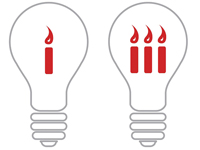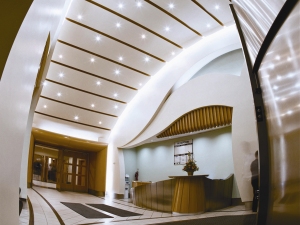Take Steps to Offset the High Increases in Electricity Costs
The network and market charges are regulated costs that account for approximately 52% of an electricity invoice for a business.
These charges are reviewed annually and approved by the Australian Energy Regulator. As from the 1 July carbon tax will be added to these charges. The only component of an invoice that is contestable is the raw energy that is used by the business and prices for this energy is contracted from licenced retailers in the electricity market. Therefore there is a greater need for business owners to ensure they obtain the best energy prices from retailers to offset the annual increase of these regulated and carbon taxes charges.
Energy commercials – The electricity market is not a “real market” where supply and demand determines prices. Generation companies sell to retailers via contract prices (for peak and off-peak) and spot prices and the retailers contract sell to the end user customers.
Market prices – Prices can vary dramatically so there is a need to seek prices from the market when they are in your favour and not simply when a retailer contacts you to renew your existing contract.
How do you know if the timing is right? You could phone a few retailers but they may advise something that suits their commercial interest and not necessarily yours. There is also the issue of how do you compare prices and information? Independent advice is available and historical information can be accessed at www.aemo.com.au
Independent expertise will be at a cost but value is achieved by obtaining better prices, terms and conditions, and providing peace of mind that you have obtained the best price from the market place.
Multi-site tenders or working through groups, such as AMG, can save on the cost per site for using the expertise.
Contracts – Don’t:
• Accept any electricity price offer without doing your homework.
• Let your contract expire without having a new contract in place to continue with firm contracted prices. High default prices (up to 150%) from your current retailer will apply from the day after the current contract expires. These default prices will continue until a new contract has been formalised with a retailer.
• Sit on retailer offers – they have expiry dates.
Do:
• Know your contract end date and start the contracting process 12 months out not at the last minute.
• Know when to seek ‘best’ prices from the market – and from which retailers.
• Equitably assess all aspects of retailers pricing offers.
• Establish the ‘best value’ contract length in terms of pricing risk.
Contract period – How long should your electricity contract be for? This depends on the retailer’s forward prices versus estimated future market prices. Again, seek retailer views but remember that your best interest may not be considered.
Another method is to seek prices for each year and assess the premium for future years, and then ask the question: “Can I obtain a better price than this at some time in the future?”
Retailer terms and conditions must be reviewed. For example, were you aware that if you sell your business, some retailers require you to include your electricity contract in the sale and that you are liable if you don’t?
Carbon tax – Perhaps the biggest issue currently facing many businesses and business owners is how the carbon pricing mechanism will impact their business. Set for introduction 1st July 2012, and popularly known as the carbon tax, it is widely assumed the carbon pricing mechanism will significantly impact the bottom line for businesses’ energy costs. What is not clear, however, is exactly how the carbon pricing mechanism will be applied and how it will progress in the future.
Information to date:
1) From 1 July 2012 to 1 July 2015 the price of carbon units will be fixed at an estimated national co-efficient factor of 0.91 which is a factor expected to be used to determine the cost of the carbon tax applicable to electricity end users.
2) An indication of the additional cost for carbon tax based on the co-efficient factor is for a small business such as a hotel using 500,000kWh’s per annum would be approximately an additional two cents per kWh or $10,000 per annum to the bottom line.
3) From 1 July 2015 the scheme enters a flexible- price phase where the price will eventually be set at auction.
To remove the price risk burden of seeking your own prices (and the administrative hassle) AMG members can join a group (bulk) electricity purchase process to help offset the future increases in the cost of energy.
Craig Marschall
Trans Tasman Energy Group

AccomNews is not affiliated with any government agency, body or political party. We are an independently owned, family-operated magazine.





